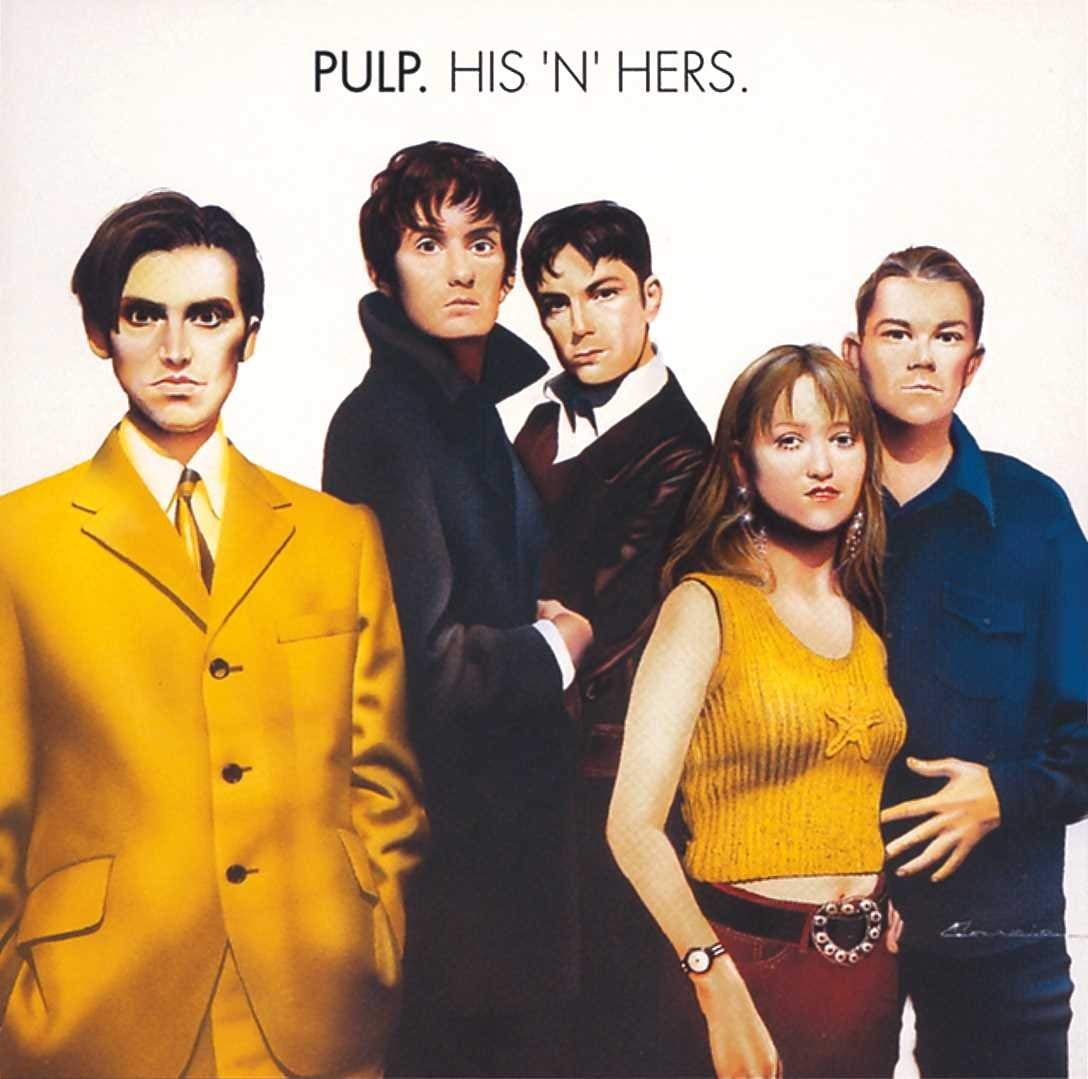In retrospect Pulp were a band that burned brightly and became hugely important to a generation, but whose work remains oddly preserved in a sort of musical aspic. Although they had been around since the late 70s, Pulp had remained almost comically incapable of making any sort of commercial or critical impact. That remained the case until a slight shift in their sound coincided with a self-important weekly music press desperate for acts that were even vaguely near their new favourite pigeonhole, resulted in the band getting caught up in the Britpop zeitgeist.
Fronted by the arch and gangly Jarvis Cocker, Pulp offered a welcome respite from the chest-beating alpha-male bullshit, or irritating cartoon mockneyisms of their chart topping contemporaries. In spirit Pulp perhaps closest to Suede, but without the middle-class art school backgrounds. In short, Pulp were pretty much as accurate a representation of where their home city were at as we could have hoped for in the mid 90s.
1994’s His ‘n’ Hers was the first Pulp album that received much in the way of press exposure and listening back to it now, it hasn’t aged as badly as the very worst Britpop has. This has subsequently resulted in His ‘n’ Hers being the Pulp album of choice for the sort of music fan who were aware of band X before they got big, hit the top of the charts and sold out (man).
The thrill of His ‘n’ Hers is that it consists of material seemingly written without the weight of expectation on it. Subsequent chart toppers Different Class and This Is Hardcore both contain material written by Jarvis Cocker that really sound like they were written specifically to be hit singles. The decade and a half of trying to make an impression on the music industry meant that Cocker was already a literate writer by the time of His ‘n’ Hers, albeit one a little bit too prone to cool posturing and the desire to ‘shock’ with his fruity lyrics and bedsit revelations. In the case of His ‘n’ Hers, songs which are now accepted as Indie classics like “Babies” (not actually on the original album, but added on later releases), “Lipgloss” and “Do You Remember the First Time?” sound considerably fresher than later hits, possibly because they were just written as tunes rather than to gain airplay.
Like most Pulp albums, His ‘n’ Hers sounds of its time, and your enjoyment of it often relies on you being either nostalgic for the era, or whether you find it sounds as badly dated as the majority of Britpop releases now do. As someone whose teenage years coincided with the Britpop boom, the nostalgia factor is there for me, despite me not actually hearing His ‘n’ Hers in full until my mid-30s, however His ‘n’ Hers is far from a flawless album. What His ‘n’ Hers is is a good Pulp album. Not familiar to the point of obsolescence like Different Class, nor as dense and foreboding as This is Hardcore, His ’n’ Hers is one of those Pulp albums that does reward revisiting, because, despite revisionist history suggesting that those in the know hailed it as an instant classic on its release, it simply wasn’t picked apart and played into the ground like their subsequent releases were. Its unfamiliarity has allowed His ‘n’ Hers to retain a freshness that better selling Pulp albums lost quite quickly, and as a result it has aged just a little bit better.
His ‘n’ Hers follow up, Different Class would see them catapult Pulp into Britpop’s elite and from there, their fate would forever be tied to a movement with a shockingly short sell-by date. If you’re in need of a Pulp-tinged nostalgia hit, then His ’n’ Hers is the album from their prime period which has aged best. While is by no means a perfect album, His ’n’ Hers is still worth a listen, if only to hear what Pulp sounded like before outside influences started to derail them.














No Comment